Game, Optimization, and Application in Decentralized Control of Energy Systems Chair: Tielong Shen (Dalian University of Technology, China) Co-chair: Yuhu Wu (Dalian University of Technology, China) |
Abstract:
The Sustainable Development Goals (SGDs) is “a shared blueprint for peace and prosperity for people and the planet.” Related to the prosperity, the energy systems including energy supplier, energy storage and energy consumption systems, are usually faced to be operated at an optimal state in the meaning of efficiency, security, demand responsibility. In an energy consumption system, which usually involve a large-scale population of agents such as electric vehicle (EVs), house-based air conditioner or heating, electricity consumption devices connected to a large-scale grid etc., the agent bid against each other with individual reward functions. Due to the large-scale population of the agents decentralized optimization strategy is desirable and Nash equilibrium is usually evaluated as an ideal state. Meanwhile, the game theory for multi-agent or networked systems achieved new progress and to use the advanced game or optimization theory to energy systems have been widely challenged from both of theory and practical research fields. This CCC2025 Development Forum will focus on new progress in game and optimization, especially on application in the large-scale energy consumption systems. The forum consists of two keynote addresses and several case studies on practical applications.
Agenda:
13:30-13:40 Prologue: Challenging Issues in Game, Optimization and Energy Consumption Systems
Prof. Tielong Shen, Dalian University of Technology, China
13:40-14:05 Keynote I: Game and Energy Storage Systems
Prof. Shengwei Mei, Tsinghua University, China
14:05-14:30 Keynote II: New progress in potention game
Prof. Yuhu Wu, Dalian University of Technology, China
14:30-15:30 Case Study (12 Minutes for each)
1) Major-miner mean field game approach to parking-based smart charging system
Jinwu Gao, Jilin University, China
2) RL approach to MFG
Zhenhui Xu, The University of Science Tokyo, Japan
3) MFG-based approach to cruising control of EVs
Fuguo Xu, Chiba University, Japan
4) Decentralized Security control of …..
Shaohua Yang, Macau University, Macau
5) Leader-follower MF gam and decentralized control of house heating…
Yuexi Zhang, Dalian University of Technology, China
Abstract and Speakers’ Biography

Challenging Issues in Game, Optimization and Energy Consumption Systems
Tielong Shen,
Professor, Dalian University of Technology, China
SICE Fellow
Abstract: The aim of this forum will be explained with a short introduction of motivated background. Challenging issues in energy consumption system will be addressed by giving a couple of examples with physical background which will be further addressed by the following speakers.
Bio: Tielong Shen is a chair Professor at Dalian University of Technology, China, and Emeritus Professor of Sophia University, Tokyo, Japan. His research interests include control theory and applications in automotive powertrain systems, power systems, and mechanical systems, and recently his research focused on mean-field gam and application. Dr. Shen has author/co-authored eleven text books in Japanese, English and Chinese, respectively, and has published more than 300 research papers in major journals. Recently, he served as general chair of SICE Annual Conference 2021, Tokyo, and general chair of the 6th IFAC Conference on ECOSM 2021, Tokyo, and the 7th IFAC E-COSM 2024, Dalian. He is the winner of the 8th TCCT Outstanding Contribution Award, and Fellow of SICE, Japan.
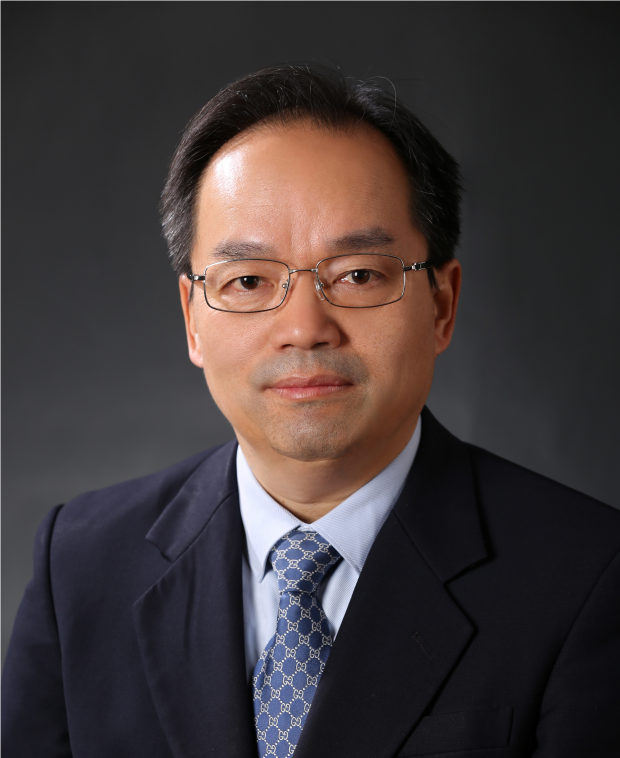
Enegineering Game Theory and Its Power System Applications
Shengwei Mei,
Professor, Tsinghua University, China
Vice-president, Qinghai University, China
IEEE Fellow
Abstract: This report focuses on the basic concepts, models, and solution methods of applying game theory to engineering control and decision problems. This research extends general game theory to engineering game theory, including fundamental theoretical innovations and engineering practices in non-linear robust control of large power generation units (steam turbine/water turbine/air turbine generator) based on differential games, complex AC/DC grid security defense based on security games, and safe and economical consumption of new energy power systems based on cooperative/non-cooperative/evolutionary games.
Bio: Shengwei Mei, Professor of Tsinghua University, Vice President of Qinghai University, Changjiang Scholars Distinguished Professor, Winner of National Science Fund for Distinguished Young Scholars, IEEE Fellow, IET Fellow, CSEE Fellow, CAA Fellow. Researches mainly focus on the security control and efficient utilization of energy-power systems, including robust control of power systems, disaster prevention of large-scale grid, new energy power systems and large-scale energy storage. He has published 512 journal papers, 10 books and 201 authorized patents. He has won1 second prize of the National Natural Science Award, 1 second prizes of the National Science and Technology Progress Award and 14 first prizes of Provincial and Ministerial Science and Technology Award.

Strategy updating algothrims for congestion games
Yuhu Wu,
Dean of School of Control Science and Engineering,
Dalian University of Technology, Dalian, China
Winner of Outstanding Young Talents Project
Abstract: A congestion game is a model that addresses the problem of traffic congestion in transportation networks. In this talk,a novel strategy updating rule is proposed for congestion games by combining the classical best-response adjustment and a time-varying inertia. In the proposed rule, we first consider a prediction mechanism that utilizes the frequency of the selected resource, derived from any length of memory in past stages, to predict the resource congestion vector for the next stage. Furthermore, we consider an inertia-based best-response dynamics for the players with time-varying inertia based on the predicted resource congestion vector so that the players can either jump to the corresponding likely best-response strategy or keep the previous strategy in the next stage.ecent progress in Potential Game
Bio:Yuhu Wu received the PhD degree in Mathematics from Harbin Institute of Technology, Harbin, China, in January 2012. Since September 2012, he has held an assistant professor position at Harbin University of Science and Technology, China. He held a postdoctoral research position at Sophia University, Japan, from April 2012 to September 2015. In October 2015, he joined the School of Control Science and Engineering, Dalian University of Technology, China, where he is currently a professor. His research interests are related to non-linear control theory, game theoretic control, and applications of control to automotive powertrain systems, and unmanned aerial vehicles. He is serving as Associate Editor for Asian Journal of Control.
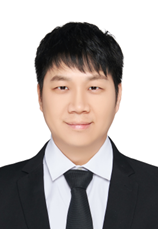
Mahor-miner mean-field game and VPP
Jinwu Gao
Jilin University, China
Winner of Outstanding Young Talents Project
Abstract: This study investigates the feasibility of the system architecture and energy interaction among the power grid, charging station, and electric vehicle (EV) group, aiming to achieve effective aggregation and coordinated optimization of energy storage system and EV group through charging station power dispatch management. In this talk, a charging station power dispatch problem based on major and minor players is proposed, with the goal of jointly optimizing the interests of both power dispatch participants, and optimal dispatch strategy for the energy storage device and optimal charging strategies for EVs are formulated. Moreover, focusing on the optimal economic goal of power dispatch for the EV aggregator, a bi-level optimal power dispatch problem framework is constructed. Under this framework, the lower level explores the charging control strategies for EVs under the condition of social optimality, the upper level control formulates the power dispatch strategy between the charging station and the power grid.
Bio: Jinwu Gao received the B. Eng. degree in the Department of Automation Measurement and Control Engineering, and the Ph.D. degree in the Department of Control Science and Engineering from Harbin Institute of Technology, Harbin, China, in 2005 and 2012. From 2012 to 2014, he was an Assistant Professor at Sun Yat-sen University, China. In July 2014, he held postdoctoral position in the Department of Engineering and Applied Science, Sophia University, Japan. From 2016 to 2020, he was an Associate Professor at Jilin University, China, and has been a Professor since September 2020. His research interests include control theory and application in automotive powertrain.
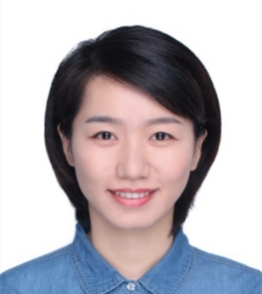
Reinforcement learning approach
Zhenhui Xu.
Assistant Professor, Tokyo Institute of Technology, Tokyo, Japan
Abstract: Mean field game is a new branch of game theory, providing a very powerful way to analyze differential games involving numerous interacting agents. This analytical machinery sheds light on the formation of collective behavior in large complex decision models involving many agents by relating it to the micro-behavior of individuals. The overall methodology provides the ground to develop rich results in stochastic analysis, control theory, partial differential equations, and numerical analysis. In addition, the advent of reinforcement learning techniques, coupled with advances in affordable measurement and computational resources, has led to the development of innovative data-driven strategies in the field of control systems. This talk will present two methods specifically designed to solve continuous-time linear quadratic Gaussian mean field games and social control problems. Specifically, in the context of the linear quadratic Gaussian (LQG) setting, we observe that the simplified optimality conditions can often be expressed by the Riccati equations for the control gain matrix. Furthermore, the evolution of the mean can be described by either ordinary differential equations or stochastic differential equations. Using these insights, we develop data-driven methods using integral reinforcement learning techniques and demonstrate convergence through rigorous algorithmic proofs. These proposed policy iterations also serve as powerful computational tools for solving LQG stochastic optimal control problems. In summary, this talk comprehensively explored how mean-field game theory and reinforcement learning techniques can intersect to solve complex decision-making models involving multiple interacting agents, and proposed practical solutions and theoretical advances in optimal control theory.
Bio: Zhenhui Xu Zhenhui Xu received the M.S. degree in control engineering from the University of Science and Technology of China in 2017, followed by a Ph.D. in mechanical engineering from Sophia University, Tokyo, Japan, in 2021. From 2021 to 2023, she served as a Postdoctoral Fellow in the Department of Engineering and Applied Sciences at Sophia University. Currently, she holds the position of specially appointed assistant professor in the Department of Systems and Control Engineering at the Tokyo Institute of Technology. Her research interests are in the fields of integral reinforcement learning, mean field game and control, and automotive powertrain control.
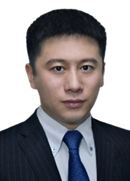
MFG-based Approach for Cruising Control of CAVs
Fuguo Xu
Associate Professor, Chiba University, Japan
Winners of Outstanding Young Talents Program (Overseas)
Abstract: In this case study, the application of MFG to transportation system is introduced. Specially, from the view of the energy saving, the speed behaviors are managed for large-population of connected and automated vehicles.
Bio: Fuguo Xu is a full professor in the School of Mechanical Engineering, Dalian University of Technology (DUT). He received the Ph.D. degree in mechanical engineering from Sophia University in 2019. Before joining DUT, he has worked as a Postdoctoral Fellow in Sophia University from October 2019 to October 2021, an Assistant Professor in Tokyo City University from November 2021 to March 2023, and an Associate Professor in Chiba University from April 2023 to February 2025. His research interests include optimal control and applications in automotive powertrain system.
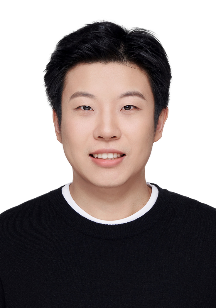
Decentralized Secure Control for HVAC-Based Demand Response in Power Systems Against Cyber-Attacks
Shaohua YANG
Postdoctoral Research Associate, The State Key Laboratory of Internet of Things for Smart City, University of Macau, Macao SAR, China
Abstract: As renewable energies with uncertainty increase on supply side, the large-scale flexible resources on demand side need to response to the flexibility requirements of power system, named demand response (DR). The widespread application of information, communication, and control technologies has evolved the DR system into a cyber-physical system. This deep cyber-physical coupling improves the performance of DR but also introduces significant cybersecurity risks that threaten the safe operation of power system. This report will explore the cyber-physical security problems in DR.
Bio: Dr. Shaohua YANG received the Ph.D. degree in Electrical and Computer Engineering from University of Macau in 2024. Currently, he is a postdoctoral research associate with the State Key Laboratory of Internet of Things for Smart City, University of Macau, His research interests include cyber-physical power systems, demand response and distributed control, with a special focus on security.

Leader-follower MFG and decentralized control of large-population air conditioning loads
Yuexi Zhang,
PhD Candidate, Dalian University of Technology, China
Abstract: A case study on application of leader-follower mean-field game to design decentralized control strategy is introduced where a large-scale population of air conditioning loads management problem is considered as physical background. It is shown that a grid-friendly, in the means of collective power demand of the air conditioning loads, decentralized control strategy design is formulated as a leader-follower mean-field game, and a solution which achieve an approximate Stackleberg equilibrium.
Bio: Yuexi Zhang received her M.S. degree in Mathematics from Bohai University, Jinzhou, China, in 2024. Currently, she is pursuing a Ph.D. in the School of Control Science and Engineering at Dalian University of Technology, Dalian, China. Her research interests focus on mean field game and control and the control of nonlinear partial differential equation systems.